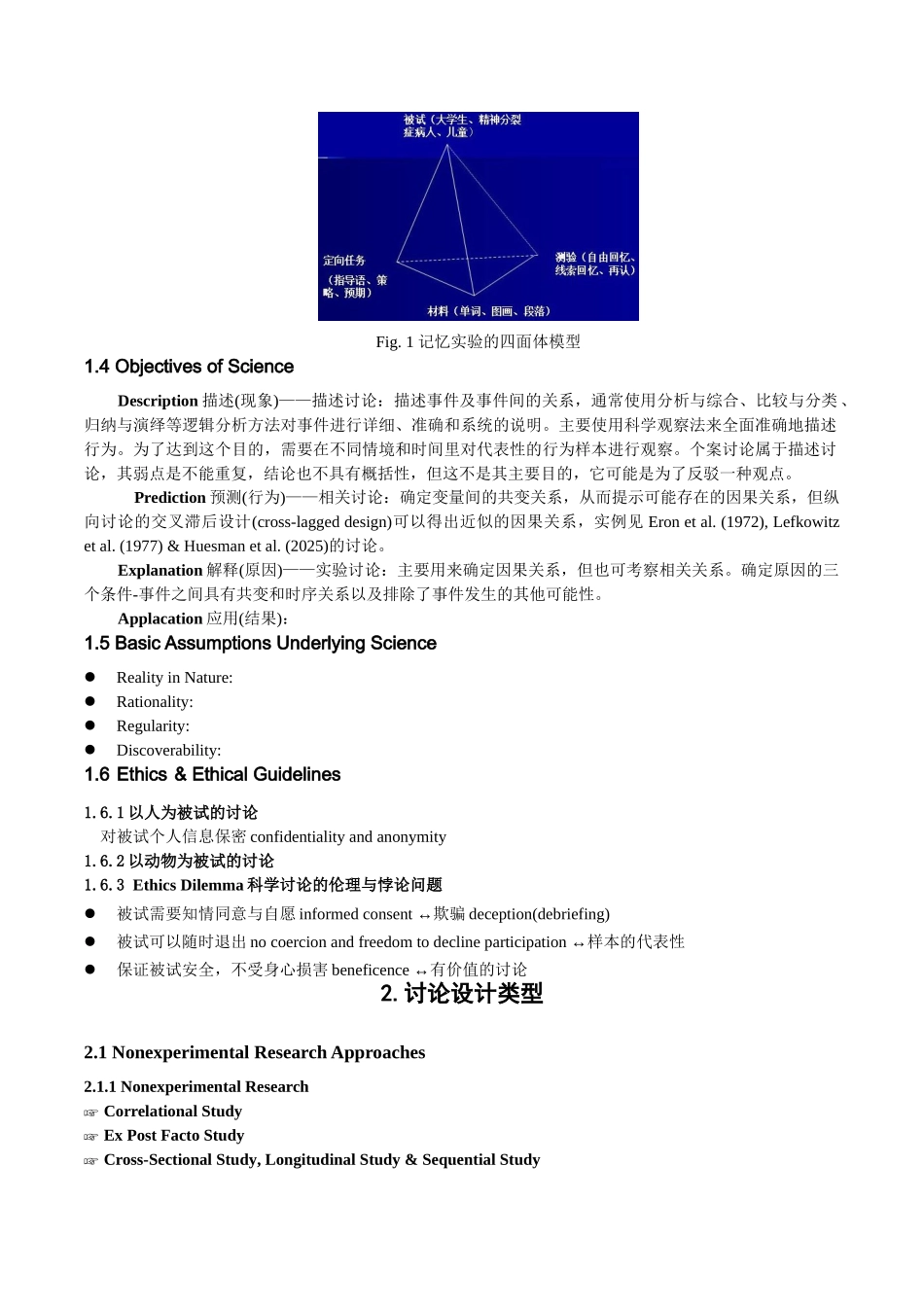Experimental Psychology & Research Methods1. What is science?1.1 Method of Acquiring KnowledgeTenacity: based on superstition or habit Intuition: not based on reasoning or inferring,the problem is that it doesn't provide a mechanism for separating accurate from inaccurate knowledge.Authority: the information stated by the authority may be inaccurate.Rationalism/Reasoning: it doesn't necessarily reflect reality and frequently doesn't provide accurate information.Empiricism: based on experience, our perceptions are affected by a number of variables and they may be not necessarily true.1.2 Scientific Method1.Identifying a problem 明确操作定义,建立讨论假设2.Designing the experiment 选择讨论设计3.Conducting the experiment and collecting the data 实施实验,收集数据4.Analyzing the data & Testing hypothesis 分析数据并呈现结果和得出结论5.Communicating the research results 报告/发表讨论成果科学心理学的逻辑 假设演绎范式是左右心理学进展的主要科学模型。e.g., (a) if 两周大的婴儿寻找一对变化的视觉刺激,then 他们会花更多的时间凝视更复杂的那一个。(b)婴儿的确花更多的时间凝视更复杂的视觉刺激。(c)因此,婴儿偏向于视觉变化性的理论得到支持。在这里,不能说成理论被证明为真。科学理论不能被证实,但必须可证伪。理论是被证据支持的,而不是被证明为真的。正面的结果仅仅表示它们对理论的支持。1.3 Characteristics of Scientific Approach客观性/实证性:强调用直接观察和实验的方法来讨论问题。Control: control the unrelated variables Operationism: operational definition Replication: the reproduction of the results of a study, that is, the data must be reliable.价值性:创新性:创新是在前人讨论基础上的创新,需要站在巨人的肩膀上。朱滢 (2025)认为,只要能在Roediger & Meade (2025)记忆实验的四面体模型(See Fig.1)四个维度中的任何一个方面有所创新,实验结果就会有新意。证伪性:心理和行为是复杂的,讨论者可能没有考虑到影响某一现象的所有因素。而且,讨论结果正确与否是概率...


